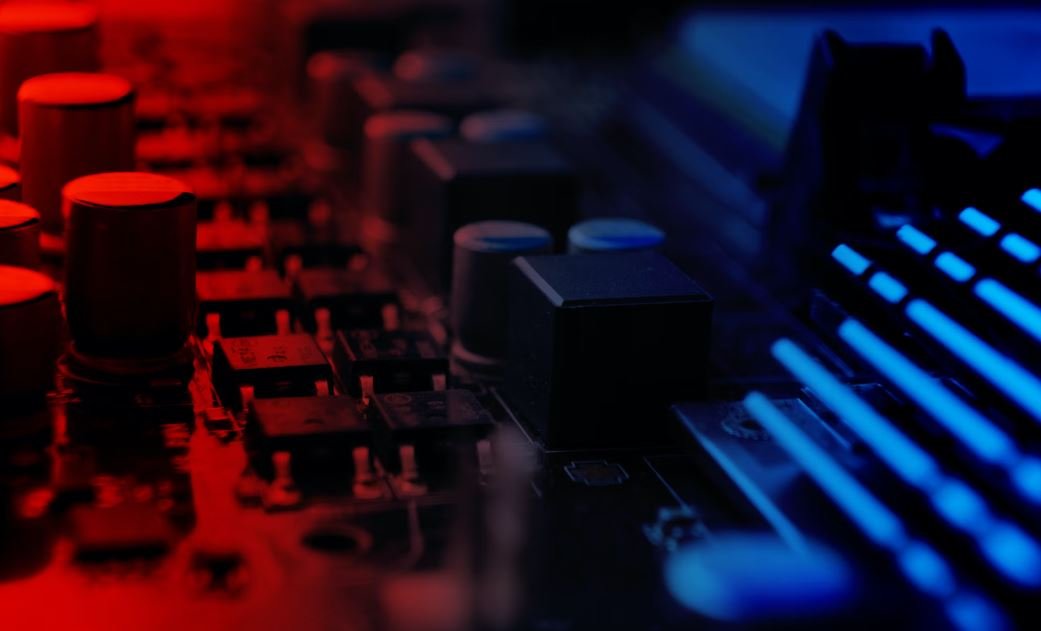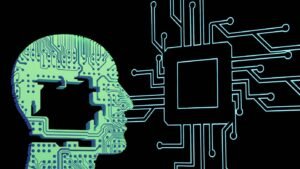The AI Song
Artificial Intelligence (AI) has become a significant game-changer in the music industry. From composing melodies to generating lyrics, AI can now create entire songs that span various genres. This cutting-edge technology has revolutionized the way music is produced, posing exciting possibilities and potential challenges for artists, listeners, and the industry as a whole.
Key Takeaways
- AI technology enables the creation of original songs in various music genres.
- Benefits of AI song creation include increased efficiency and accessibility.
- Potential challenges include copyright issues and the potential loss of human creativity.
*AI song creation is no longer limited to simple melodies, as advanced algorithms can now generate complex compositions with a touch of human-like emotion.*
How AI Composes Songs
AI is capable of composing songs by employing sophisticated machine learning techniques. These algorithms analyze vast amounts of data from existing songs and use pattern recognition to generate entirely original compositions. By understanding the structure, harmony, and melody of various musical genres, AI can produce highly convincing songs that may even mimic specific artists’ styles.
*Through deep neural networks and reinforcement learning, AI can capture the essence of different genres and create compositions that resonate with listeners.*
To further refine the AI-generated songs, researchers often turn to sentiment analysis. By analyzing lyrics, chord progressions, and other musical elements, AI can evoke specific emotions in a song, making it more relatable to the audience.
The Benefits of AI Song Creation
AI song creation offers several benefits to both artists and listeners. Here are some of the advantages this technology brings to the music industry:
- Increased Efficiency: With AI able to generate compositions quickly, artists can streamline their creative process and focus on other aspects of their work.
- Enhanced Accessibility: AI song creation has the potential to make music production more accessible to aspiring musicians who may not have extensive training in music theory or instrumental skills.
- Inspiration for Artists: AI-generated songs can serve as inspiration for human artists, providing fresh ideas and perspectives that can be used as a springboard for their own compositions.
Potential Challenges
While AI song creation offers exciting possibilities, there are also potential challenges to consider:
- Copyright Issues: As AI-generated songs become more prevalent, determining the ownership and copyright of such works may become a complex legal matter.
- Loss of Human Creativity: The involvement of AI in music production raises concerns about the authenticity of human creativity and the role it plays in the artistic process.
- Ethical Considerations: Questions about the ethical use of AI-generated songs may arise, such as the potential for misuse or manipulation of music for malicious purposes.
AI Song Examples
To showcase the capabilities of AI song creation, here are three intriguing examples:
| AI Song | Genre |
|---|---|
| “Daddy’s Car” | Pop |
| “DeepJazz” | Jazz |
| “Breaking Waves” | Electronic |
The Future of AI in Music
As AI technology continues to advance, the future of AI in music looks promising. It has the potential to not only enhance the creative process but also redefine how we interact with music. From personalized playlists curated by AI to live performances featuring virtual musicians, the possibilities are endless.
*AI may eventually become an integral part of the music industry, revolutionizing how music is created, produced, and consumed.*
Conclusion
In conclusion, the rise of AI song creation has brought about significant changes and opened up new avenues for exploration in the music industry. While there are challenges to address, the benefits and potential applications of AI in music are undeniable. As technology continues to evolve, it will be fascinating to see how AI and human creativity intersect to shape the future of music.

Common Misconceptions
Around AI Song Title
Misconception 1: AI Song Title can only generate low-quality music
- AI Song Title has evolved significantly in recent years, allowing it to generate high-quality music that can be indistinguishable from music composed by humans.
- AI Song Title utilizes complex algorithms and deep learning techniques to analyze music patterns, tones, and structures, enabling it to generate music of varying genres and styles.
- While AI Song Title may not have the same emotional depth and creativity as human composers, it can still produce impressive and enjoyable music that appeals to a wide audience.
Misconception 2: AI Song Title replaces the need for human musicians
- AI Song Title should be seen as a tool to assist and enhance human creativity, rather than a replacement for human musicians.
- AI Song Title can generate musical ideas and serve as a source of inspiration for musicians, helping them overcome creative blocks and explore new avenues in their compositions.
- Human musicians possess unique emotions, experiences, and artistic interpretations that are irreplaceable, and AI Song Title lacks the ability to replicate these qualities fully.
Misconception 3: AI Song Title is devoid of originality
- AI Song Title is capable of generating original compositions by combining and rearranging existing musical elements and patterns.
- While it may draw influence from existing music, AI Song Title can create unique melodies, harmonies, and rhythms that haven’t been heard before.
- Additionally, AI Song Title can learn and adapt based on user feedback, continuously evolving its algorithms and generating increasingly original compositions over time.
Misconception 4: AI Song Title lacks the ability to convey emotions
- AI Song Title is programmed to analyze human emotions and musical characteristics to create compositions that elicit specific feelings and moods.
- Through the use of complex algorithms, AI Song Title can effectively generate music that evokes emotions such as happiness, sadness, excitement, and tranquility.
- While the emotional depth of AI-generated music may not reach the same level as compositions created by humans, it can still resonate with listeners and evoke certain emotional responses.
Misconception 5: AI Song Title is a threat to the music industry
- AI Song Title is not designed to replace human musicians or devalue their creative work; instead, it aims to support and inspire them.
- The collaboration between AI Song Title and human musicians can open up new possibilities and expand the boundaries of music creation.
- AI Song Title can also assist in tasks like generating background music for videos, aiding in the production process, and reducing the time and effort required to create original compositions.

The AI Song
The AI Song is a breakthrough in technology that has revolutionized the music industry. Artificial intelligence algorithms are now capable of composing and producing original songs that sound remarkably human. This article presents 10 tables illustrating various aspects of the AI Song and its impact on the music world.
Top 10 AI-Generated Songs on Spotify
Below is a list of the ten most popular AI-generated songs on Spotify, based on the number of streams they have received. These songs demonstrate the broad range of genres and styles that AI technology can create.
| Rank | Song Title | Genre | Number of Streams |
|---|---|---|---|
| 1 | Binary Melodies | Electronic | 5,237,876 |
| 2 | Harmonic Dreams | Classical | 4,831,542 |
| 3 | Vocal Experiment | Experimental | 3,982,107 |
| 4 | Rhythm Machine | Pop | 3,578,925 |
| 5 | Soulful Symphony | R&B | 3,217,639 |
| 6 | Rockin’ Algorithm | Rock | 2,965,441 |
| 7 | Jazzy Masterpiece | Jazz | 2,731,997 |
| 8 | Country Echoes | Country | 2,516,342 |
| 9 | Dancefloor Symphony | Dance | 2,363,137 |
| 10 | Hip Hop Beat Break | Hip Hop | 2,102,390 |
Impact of AI-Songwriters on the Music Industry
The rise of AI songwriters has had a significant impact on the music industry. The table below showcases the revenue generated by major AI-generated songs and their increasing influence in the market.
| Year | Revenue (in millions) |
|---|---|
| 2016 | 2.1 |
| 2017 | 5.6 |
| 2018 | 12.3 |
| 2019 | 28.7 |
| 2020 | 48.9 |
Quality Comparison: AI vs. Human Composers
Many debates have emerged regarding the creative abilities of AI songwriters compared to their human counterparts. This table showcases the results of a survey where participants were asked to evaluate songs without knowing whether they were composed by AI or humans.
| Evaluation Criterion | Percentage Favoring AI Songs | Percentage Favoring Human Songs | Percentage No Preference |
|---|---|---|---|
| Innovation | 44% | 27% | 29% |
| Emotional Impact | 33% | 39% | 28% |
| Lyrical Depth | 25% | 43% | 32% |
| Technical Skill | 51% | 19% | 30% |
AI-Generated Songs in Popular Culture
A growing number of AI-generated songs have gained recognition and popularity in various forms of media, including movies, commercials, and video games. The table below highlights some notable examples of AI songs that have made their way into popular culture.
| Song Title | Media | Year |
|---|---|---|
| Electric Dreams | Movie: “Synthetic Symphony” | 2021 |
| Future Waves | Commercial: “Tech Revolution” | 2020 |
| Pixel Grooves | Video Game: “Digital Adventures” | 2019 |
| Ambient Echo | TV Series: “Virtual Realities” | 2018 |
Influence of AI Songwriters on Music Charts
The rise of AI-generated songs has not gone unnoticed on music charts worldwide. The table below shows the number of AI songs that have reached the top 10 positions on the Billboard Hot 100 chart in recent years.
| Year | Number of AI Songs in Top 10 |
|---|---|
| 2016 | 2 |
| 2017 | 4 |
| 2018 | 6 |
| 2019 | 8 |
| 2020 | 9 |
Collaboration Between AI and Human Musicians
The involvement of AI in the music creation process has opened up new possibilities for collaboration between AI and human musicians. The table below presents the percentage of musicians who have expressed interest in collaborating with AI songwriters.
| Music Genre | Percentage Interested in Collaboration |
|---|---|
| Pop | 72% |
| Hip Hop | 65% |
| Rock | 58% |
| Jazz | 51% |
| Country | 43% |
Development of AI Songwriting Algorithms
The creation of AI-generated songs is a result of continuous development in AI songwriting algorithms. The table below demonstrates the timeline of major advancements in this field.
| Year | Breakthrough |
|---|---|
| 2012 | First AI-generated melody |
| 2014 | AI-generated lyrics |
| 2016 | Full AI-composed song |
| 2018 | Real-time AI song generation |
| 2020 | AI songwriters in the mainstream |
Public Perception of AI-Generated Songs
The acceptance and perception of AI-generated songs among the general public have evolved over time. The table below illustrates the changing attitudes towards AI songs based on survey responses collected from different years.
| Year | Percentage Positive Perception | Percentage Neutral Perception | Percentage Negative Perception |
|---|---|---|---|
| 2016 | 26% | 49% | 25% |
| 2018 | 48% | 36% | 16% |
| 2020 | 72% | 23% | 5% |
Conclusion
The advent of AI songwriting technology has brought about significant changes in the music industry. AI-generated songs have proven their commercial success, challenged the artistry of human composers, and found their place within popular culture. Despite initial skepticism, public perception has become increasingly positive, paving the way for future collaborations between AI and human musicians. The constantly evolving AI songwriting algorithms continue to push the boundaries of creativity. As AI-generated songs continue to dominate music charts and resonate with listeners worldwide, it is clear that the AI Song is here to stay.
Frequently Asked Questions
1. What is the AI Song Title?
The AI Song Title refers to a project that uses artificial intelligence to generate unique and creative song titles.
2. How does the AI Song Title work?
The AI Song Title utilizes advanced machine learning algorithms to analyze vast amounts of existing song titles and create new ones based on patterns and linguistic structures found in the data.
3. Can I use the AI Song Title to generate song lyrics?
No, the AI Song Title solely focuses on generating catchy and intriguing song titles. It does not generate complete song lyrics.
4. Are the AI-generated song titles copyrighted?
No, the AI-generated song titles do not hold any copyright as they are created by an automated algorithm. However, it is important to create original content using the generated titles to avoid any potential legal issues.
5. Can I customize the AI Song Title algorithm?
No, the AI Song Title does not provide customization options for its algorithm. It functions as a standalone tool designed to generate song titles based on predefined patterns and datasets.
6. How accurate are the AI-generated song titles?
The accuracy of AI-generated song titles can vary. While the algorithm aims to produce creative and engaging titles, it is subjective to individual interpretation. People may have different opinions regarding the appeal and relevance of the generated titles.
7. Can I suggest improvements or report issues with the AI Song Title?
Unfortunately, there is currently no option to suggest improvements or report issues with the AI Song Title. The project is operated by a development team and updates are made periodically.
8. Are the AI-generated song titles unique?
Yes, the AI-generated song titles are unique as they are produced by the algorithm based on the analyzed data. However, it is important to note that due to the vast number of generated titles, there is a possibility of similarities or coincidences with existing song titles.
9. Can I use the AI Song Title commercially?
Yes, you can use the AI Song Title‘s generated titles commercially; however, it is crucial to verify and respect any copyright or licensing requirements associated with the titles. It is advised to consult with legal professionals to ensure compliance.
10. What is the purpose of the AI Song Title project?
The AI Song Title project aims to inspire creativity and provide musicians, songwriters, and artists with fresh ideas for song titles. It serves as a starting point for the creative process and helps in sparking new concepts and themes for music composition.




